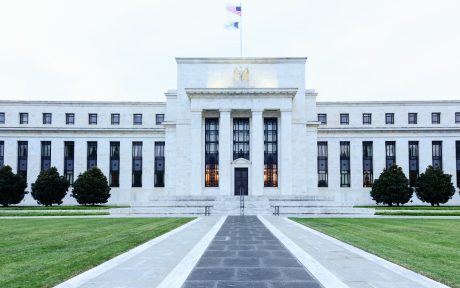
Consumers, financial market participants, and policymakers are particularly interested in the trend, or persistent, component of inflation.
At the New York Fed, our mission is to make the U.S. economy stronger and the financial system more stable for all segments of society. We do this by executing monetary policy, providing financial services, supervising banks and conducting research and providing expertise on issues that impact the nation and communities we serve.
Look for our next post on February 3.
A Conversation with Jaison R. Abel and Richard Deitz

A Conversation with Jaison R. Abel and Richard Deitz With the 2017 college graduation season in full swing, we thought it would be helpful to take stock of the job prospects for recent college graduates. Is now a good time to be graduating from college? Publications editor Trevor Delaney caught up with Jaison Abel and […]
Paul Goldsmith-Pinkham
Paul Goldsmith-Pinkham explores how the lifting of bankruptcy flags affects borrowers’ credit scores and credit outcomes.
Viral V. Acharya, Michael J. Fleming, Warren B. Hrung, and Asani Sarkar

During the 2007-08 financial crisis, the Fed established lending facilities designed to improve market functioning by providing liquidity to nondepository financial institutions—the first lending targeted to this group since the 1930s.
Abhi Gupta, Pearl Li, Erica Moszkowski, Marco Del Negro, and Marc Giannoni
A little more than a year ago, in this post, we announced DSGE.jl—a package for working with dynamic stochastic general equilibrium (DSGE) models using Julia, the open-source computing language. At that time, DSGE.jl contained only the code required to specify, solve, and estimate such models using Bayesian methods. Now, we have extended the package to provide the additional code needed to produce economic forecasts, counterfactual simulations, and inference on unobservable variables, such as the natural rate of interest or the output gap. The old, pre-Julia version of the code, which was written in MATLAB and is posted here on Github, a public repository hosting service, also performed some of these functions, but not quite as fast.
Jonathan McCarthy, Richard Peach, and Robert Rich
Today, the Federal Reserve Bank of New York (FRBNY) is hosting the spring meeting of its Economic Advisory Panel (EAP). As has become the custom at this meeting, the FRBNY staff is presenting its forecast for U.S. growth, inflation, and the unemployment rate.
Liberty Street Economics features insight and analysis from New York Fed economists working at the intersection of research and policy. Launched in 2011, the blog takes its name from the Bank’s headquarters at 33 Liberty Street in Manhattan’s Financial District.
The editors are Michael Fleming, Thomas Klitgaard, Maxim Pinkovskiy, and Asani Sarkar, all economists in the Bank’s Research Group.
Liberty Street Economics does not publish new posts during the blackout periods surrounding Federal Open Market Committee meetings.
The views expressed are those of the authors, and do not necessarily reflect the position of the New York Fed or the Federal Reserve System.
We encourage your comments and queries on our posts and will publish them (below the post) subject to the following guidelines:
Please be brief: Comments are limited to 1,500 characters.
Please be aware: Comments submitted shortly before or during the FOMC blackout may not be published until after the blackout.
Please be relevant: Comments are moderated and will not appear until they have been reviewed to ensure that they are substantive and clearly related to the topic of the post.
Please be respectful: We reserve the right not to post any comment, and will not post comments that are abusive, harassing, obscene, or commercial in nature. No notice will be given regarding whether a submission will or will
not be posted.
Comments with links: Please do not include any links in your comment, even if you feel the links will contribute to the discussion. Comments with links will not be posted.
The LSE editors ask authors submitting a post to the blog to confirm that they have no conflicts of interest as defined by the American Economic Association in its Disclosure Policy. If an author has sources of financial support or other interests that could be perceived as influencing the research presented in the post, we disclose that fact in a statement prepared by the author and appended to the author information at the end of the post. If the author has no such interests to disclose, no statement is provided. Note, however, that we do indicate in all cases if a data vendor or other party has a right to review a post.
